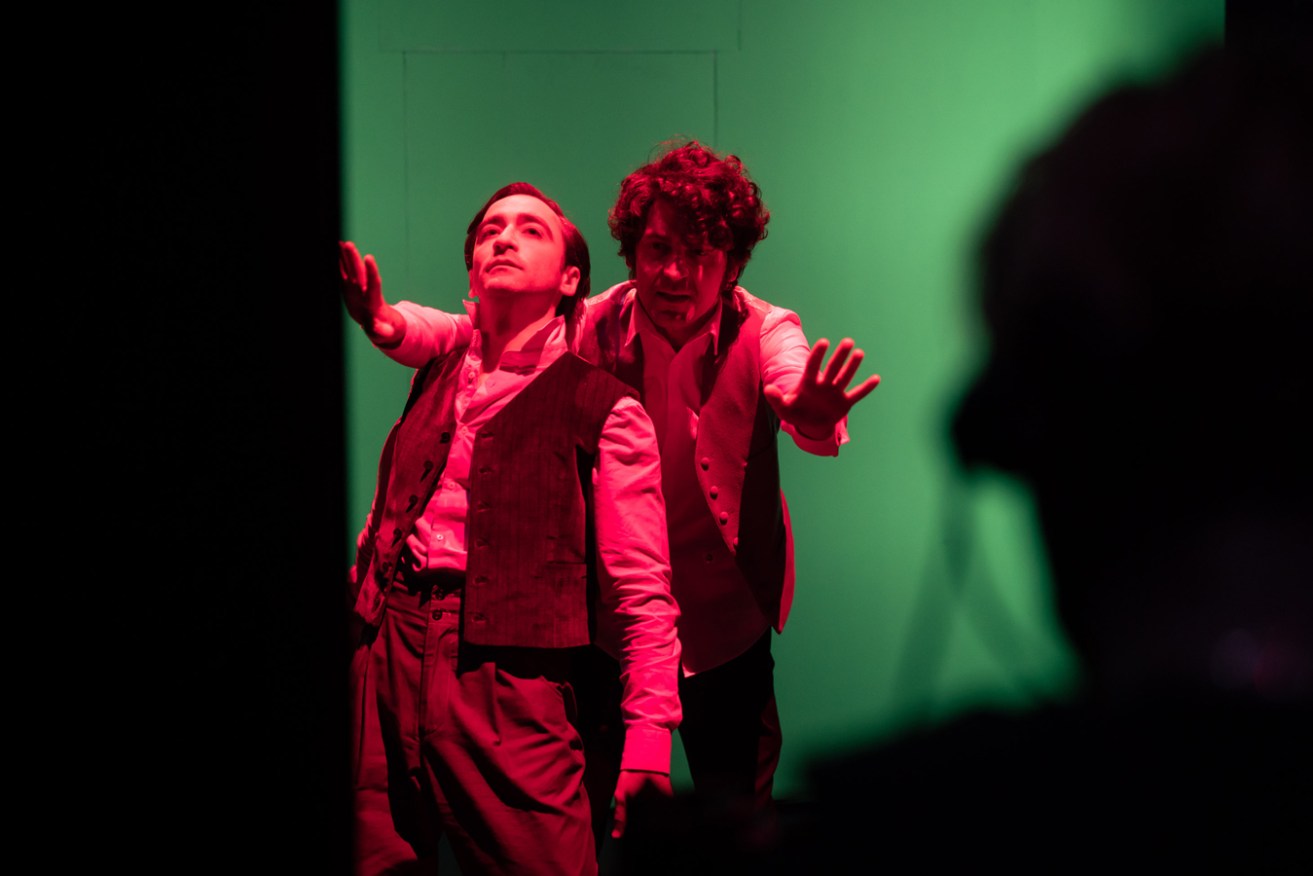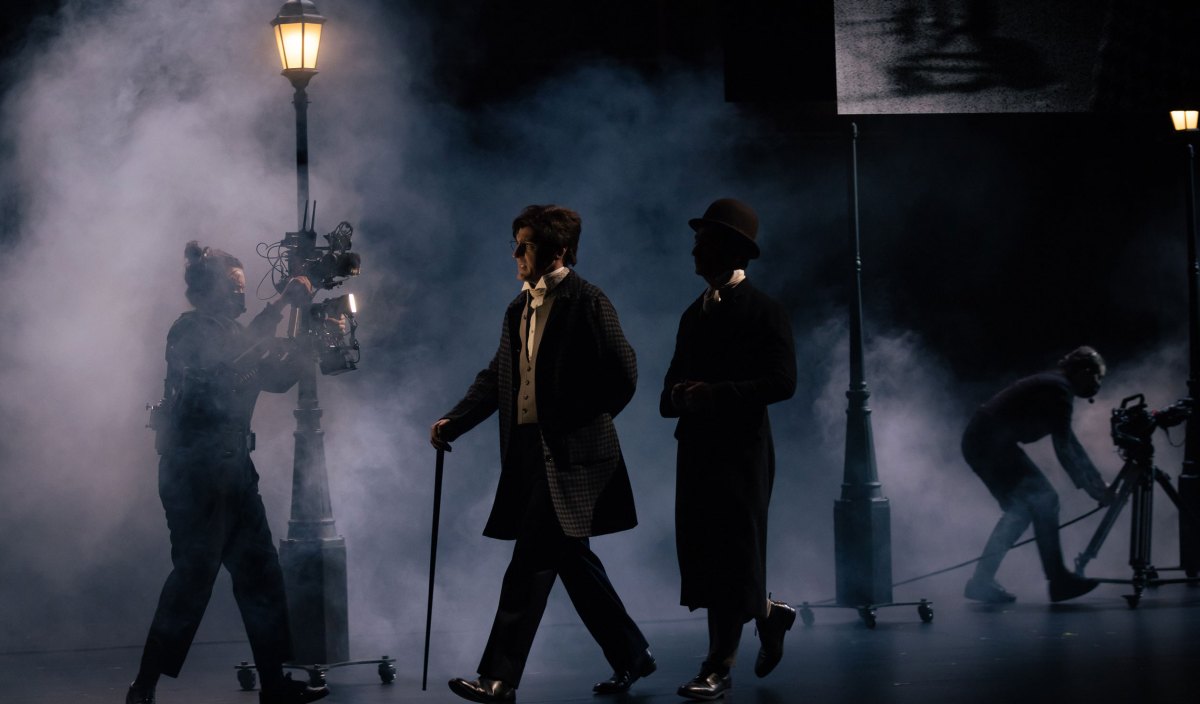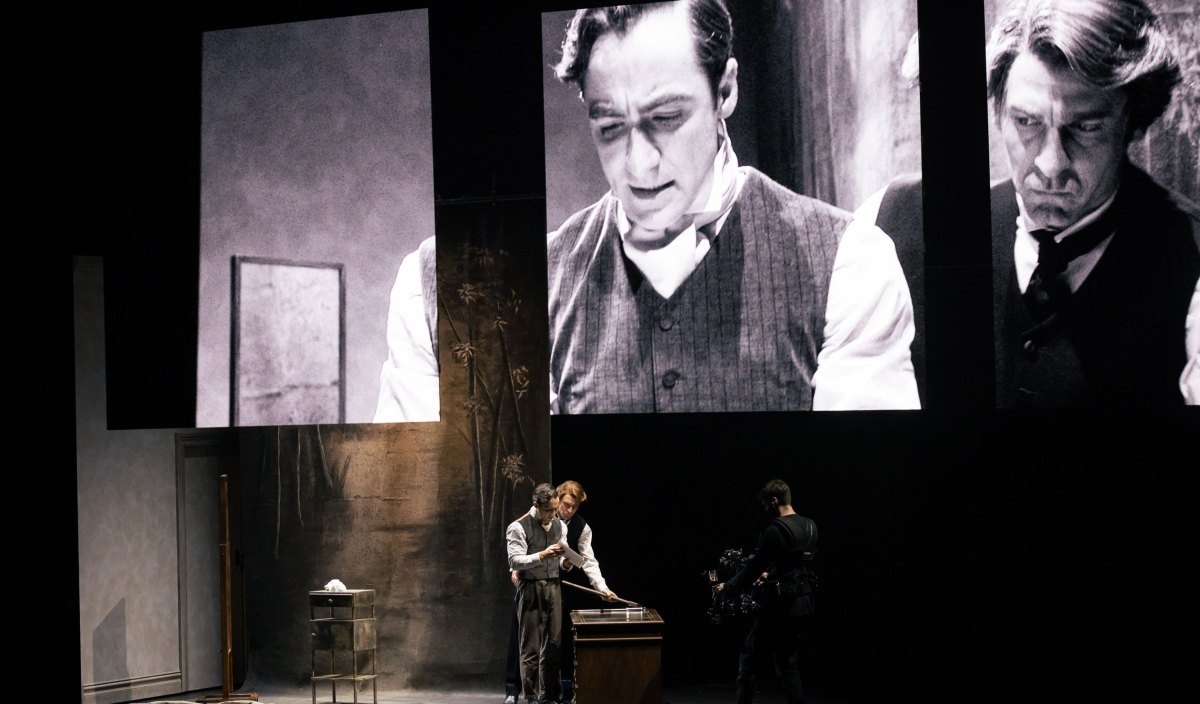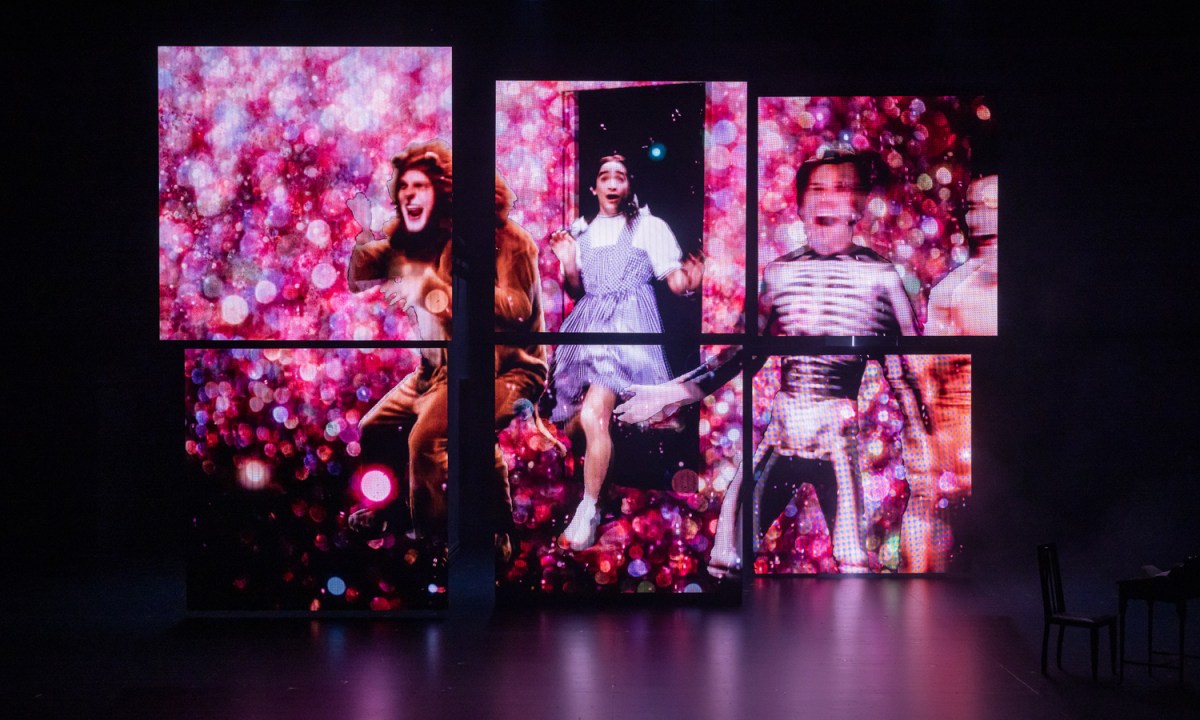Adelaide Festival review: Strange Case of Dr Jekyll and Mr Hyde
Robert Louis Stevenson’s classic tale about the struggle between public virtue and unconscious impulse is brilliantly transformed for stage and screen.


Matthew Backer and Ewen Leslie in 'Strange Case of Dr Jekyll and Mr Hyde'. Photo: Daniel Boud
One of the many happy consequences of ongoing Adelaide Festival programming is that we have the chance to see the development of new work from artists and companies who have performed previously. So, after last year’s extraordinary production The Picture of Dorian Gray by adapter and director Kip Williams and Sydney Theatre Company, we now have their new show, Strange Case of Dr Jekyll and Mr Hyde. Very different in tone and visual style, it is a much-awaited work and, in its way, it is also extraordinary.
The rudiments of the story of Jekyll and Hyde are widely known; you could say it is a modern fable. It has its predecessors – dualities, doppelgangers and ruptures of consciousness and identity preoccupied 19th-century society – but it was Dr Jekyll and his split personality that anticipated Sigmund Freud’s notion of psychosis and the later concept of schizophrenia, and the story is widely known as an example of these conditions.
The Jekyll/Hyde myth has been, as Williams observes, “deployed as a shorthand for a person with two opposing sides to their identity”. Instead, this production explores the multiplicity at the core of human experience. As he puts it – “to rebuke the binaries”. And there is much justification for this rebuke, since even the diagnostic language has changed from terms like split personality to dissociative identity disorder.
The opening scene of this production is as astonishing as Dorian Gray was previously. The impact of the actors performing in real time while a squad of darkly-clad videographers dart and weave to capture them for relay to large movable screens is immediate. Titles indicate it is Chapter One and we are introduced by Ewen Leslie, as narrator, and Matthew Backer, as Gabriel Utterson, the conscientious lawyer and friend of Henry Jekyll. The images, in pristine monochrome, are huge and compelling as the story begins to unfold.

A Victorian street scene in Strange Case of Dr Jekyll and Mr Hyde. Photo: Daniel Boud
Preparing for a street scene, designer Marg Horwell’s apt and nimble décor designates a row of dim Victorian street lamps to form a walkway for Utterson and his friend Enfield, now played by Leslie in specs and a frock coat, to set the intrigue in motion. The energy and rhythm of the performances and their screen capture is delectable to watch as the actors deliver Stevenson’s dense but cadenced prose with clarity and precision.
Everything said and performed is relayed, amplified and reframed. Utterson reaches into his safe for Jekyll’s deed of will and the camera is waiting to capture it. David Bergman’s black and white images are reminiscent of earlier screen versions of the story – Fredric March in 1932 and Spencer Tracy in 1941 – but they seem clumsy in contrast to the lithe narrative created here.

Everything said and performed is relayed, amplified and reframed. Photo: Daniel Boud
Ewen Leslie, like Eryn Jean Norvill in Dorian Gray, plays a multitude of roles. Taking on a moustache for Dr Lanyon, or a Yorkshire dialect for the butler Poole, he deftly distinguishes the characters. For Mr Guest, the clerk, the wig is especially variant, but the greatest challenge is Hyde. Stooped and lumpen is obvious, the long greasy ringlets and black contact lenses are intriguingly heavy metal.
Nick Schlieper’s lighting is in itself illuminating. The sequence when Utterson is climbing a staircase in search of Jekyll is masterly (especially with Clemence Williams’ artful musical score inspired by Herrmann and Hitchcock), and the moment (from Lanyon’s horrified account) when Hyde transmogrifies back to the not-so-good doctor is a highpoint.
“If he be Mr Hyde, then I shall be Mr Seek.” Matthew Backer, as Utterson, anchors the production with his modest, industrious zeal to solve the mystery. It is expertly pitched and a perfect foil to the necessary histrionics as Leslie, sometimes on a knife-edge, has to navigate a cast of many. And, as Kip Williams’ parallel case of someone with hidden and proscribed impulses and desires, Utterson’s experiment with Jekyll’s potion ushers in a scene of unexpected colour, movement and mirror balls.

Strange Case of Dr Jekyll and Mr Hyde. Photo: Daniel Boud
Despite an unexpected medical emergency in the audience which caused a 20-minute halt to the performance on opening night, the production did not break its stride. It is an ambitious, innovative take on a challenging text. Stevenson’s story is, to an extent, an unconscious and unresolved work (he called it his “fine bogey tale”), whereas Wilde’s The Picture of Dorian Gray is a suave and knowing satire which especially lent itself to the excellent renovation it received by Williams.
Strange Case of Dr Jekyll and Mr Hyde is also perhaps a tad too long to fit easily into the two-hour performance time and the final chapter has a haste to it that gives more urgency than reflection. Nonetheless, two actors, 13 technicians and a splendid team of creatives have produced a terrific work which is a highlight of this festival, and hopefully many others.
Strange Case of Dr Jekyll and Mr Hyde is playing at Her Majesty’s Theatre until March 12 as part of the 2023 Adelaide Festival.
Read more Adelaide Festival coverage here on InReview.




